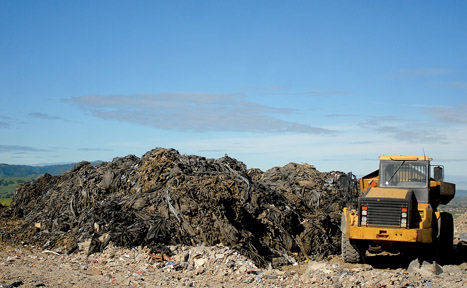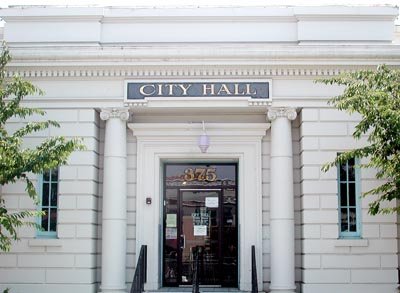With local retirement in environmental health division, supes support move
With local retirement in environmental health division, supes support move
At the March 6 county board of supervisors meeting, the supervisors approved a contract with CalRecycle, the California Department of Resources, Recycling and Recovery, to inspect local landfills and composting facilities.
The contract will go into effect May 1, when the authority will be transferred from the San Benito County Environmental Health Division that has been acting as the local enforcement agency, to the state department. State law requires that landfills and composting facilities be inspected to ensure that they are following state guidelines about the disposal and reuse of materials.
Margie Riopel, a management analyst with the county, presented information about a memorandum of understanding between the county and CalRecycle.
“I recommend we move forward as there is no general fund contribution,” Riopel said, adding that the county could reapply to handle inspections on the local level again at any time.
The funding to cover the cost of the local enforcement program largely comes from a grant and fees from the facilities that are regulated. A portion of the funding also comes from other health division programs. The budget for inspection for 2011-12 was $23,515, with nearly $16,000 covered by grants and another $7,500 covered by fees.
CalRecycle will invoice facilities such as John Smith Landfill on a monthly basis rather than requiring an annual permit fee. The hourly rate for inspections is $131.76 per hour, plus mileage for inspectors. Based on the number of inspections and time spent on the program in 2010-11, the cost of the program with CalRecycle would be around $28,000.
Georgianne Turner, a manager with CalRecycle, based in Sacramen
to, attended the meeting to answer any questions supervisors might have about the service.
“CalRecycle is obligated to fill the same obligations as the local enforcement agency,” Turner said. “But we are not next door so that is something to consider. We are two and a half hours away. We are available on phones and have our cell phones in the field.”
Margie Barrios asked that CalRecycle try to be “as frugal as they can so it doesn’t cost companies” a lot more.
Turner said that as CalRecycle has been “crushed for resources,” they have made efforts to keep costs low.
“This transition should be pretty seamless for (facilities,)” Turner said.
San Benito County has 10 facilities that are regulated by the local enforcement agency and will be overseen by CalRecycle. They include both active sites such as the John Smith Landfill and Herbert Compost Operation, and inactive or closed sites such as Harts Landfill and the Old San Juan Dump.
Kathy Flores, the director of the county’s Health and Human Services Agency, told the supervisors in December that the person in the environmental health specialist III position would be retiring and it was her intention not to fill the position due to budget constraints. Flores said that other staff members would have to meet training certification requirements and it would trigger a re-evaluation of the local enforcement program. The supervisors decided to look into transfer the authority to inspect landfills and composting sites back to the state to eliminate the need to re-evaluate the program, have staff meet the certification and to eliminate the work involved with the program to free up staff members to handle other duties.








